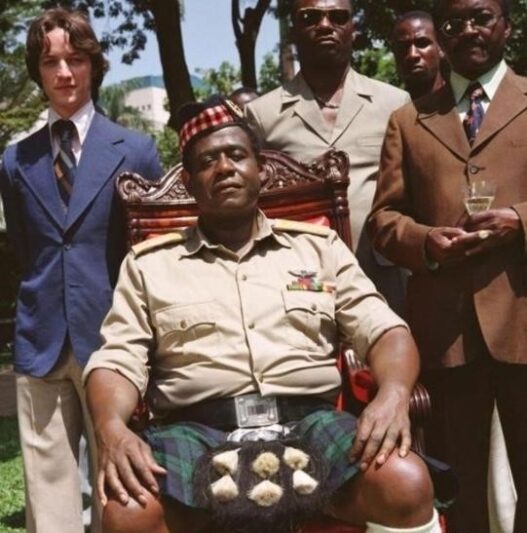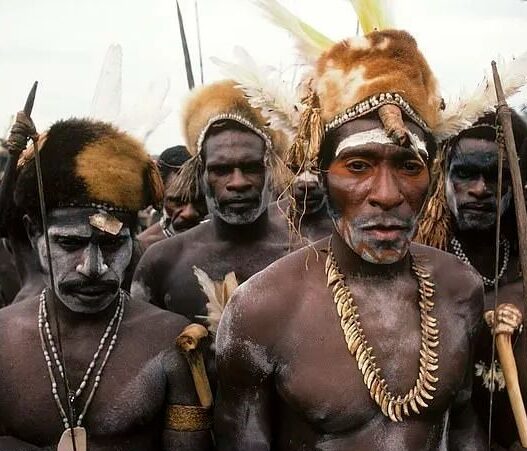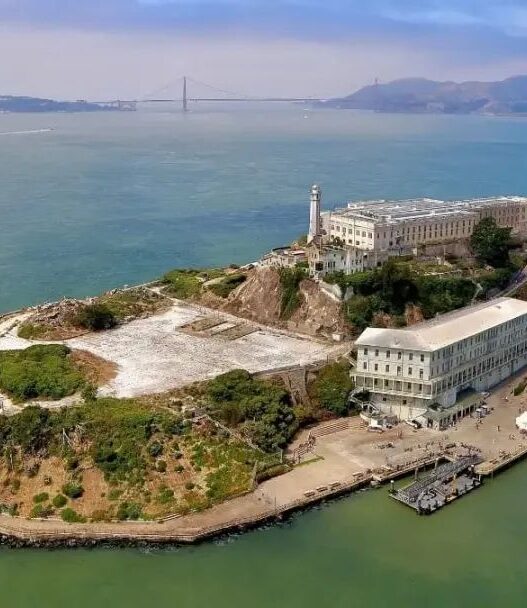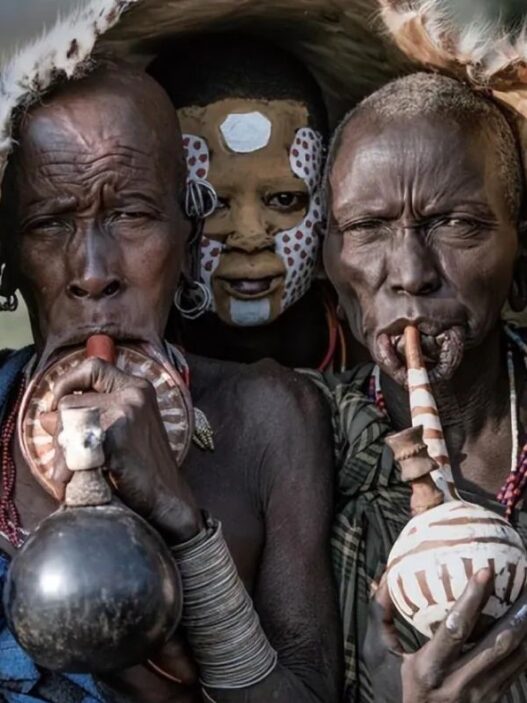Imagine witnessing this scene: a man making a grand spectacle out of eating meat. You might think it’s just showmanship, but what if the meat was human flesh? Would you not feel chills running down your spine?
He was known as one of the most inhumane tyrants on the African continent, one of the most infamous rulers in modern history. During his seven-year reign of terror, he was responsible for the deaths of nearly 300,000 of his own citizens, and even his own wives were not spared in his fits of rage. He had a perverse obsession with torturing people to death, publicly eating human flesh, and feeding the leftovers to crocodiles in the Nile River. Eventually, the sheer number of victims led to the river’s hydroelectric dams being clogged with thousands of bodies.
Internationally, he was equally lawless. He suggested moving the United Nations headquarters to his country, flirted with Queen Elizabeth II, and even demanded her used underwear as a gift.
What kind of man was capable of such absurd and cruel acts, and what was his ultimate fate?
Today, let’s delve into the life of “The Butcher of Africa,” the former President of Uganda, Idi Amin.

Amin’s childhood was marked by tragedy. Born in a small village in northern Uganda, he grew up in poverty, and his father abandoned him and his mother, leaving Amin without paternal love and with only four years of primary education, making him nearly illiterate.
Fortunately, nature blessed Amin with a robust physique. He grew to 6 feet 4 inches tall and weighed over 220 pounds, with the strength of an ox. Despite his humble background, few dared to belittle him directly, fearing the wrath of this African version of Shaquille O’Neal.
In 1940, Amin seized an opportunity to change his fate by joining the army.
His exceptional physical condition and fearless courage earned him numerous accolades in battle, leading to his promotion to sergeant within a few years. More fortunate still, he caught the eye of Obote, the Prime Minister of Uganda at the time. Obote was a man of great ambition, and Amin became a key player in his quest for power.
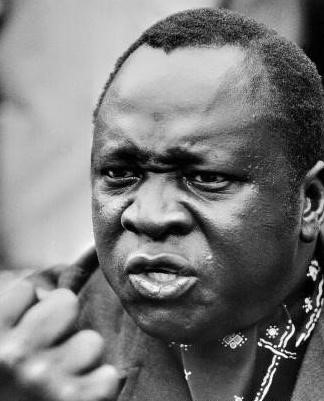
With Amin’s help, Obote smuggled ivory and gold, amassing wealth, and together they orchestrated a coup. Obote became Uganda’s founding president, and Amin was appointed as the Commander-in-Chief of the Armed Forces.
Obote believed he had struck a great deal, thinking that a few favors were enough to secure Amin’s loyalty. But he underestimated Amin’s ambition, which was as vast as the ocean.
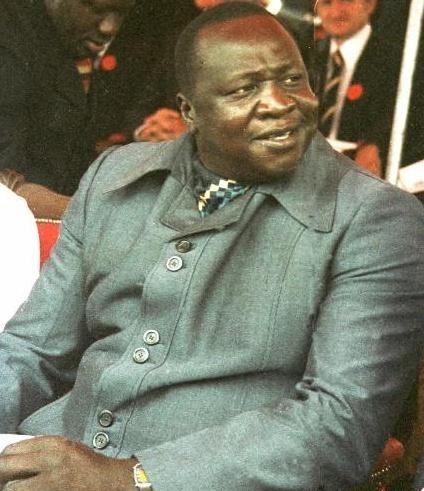
On a fateful day in 1971, Amin summoned his loyalists in the military and launched a coup, dismantling Obote’s government in just ten days and declaring himself the third President of Uganda.
Initially, Amin was somewhat popular. He proclaimed himself a nationalist, releasing 55 political prisoners, and showed kindness to his people by marrying women from different tribes and even providing a state funeral for the former king. His broad-mindedness and affection for his people were celebrated by Ugandans, who thought their golden days were about to begin.
However, reality delivered a harsh blow. Instead of prosperity, Amin plunged the nation into darkness, embarking on a seven-year reign of absurdity.
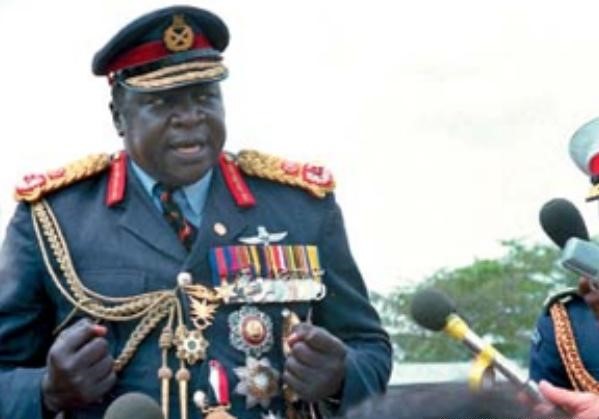
To consolidate his power, Amin’s first act was to eliminate Obote’s allies. Anyone in politics who had any connection to Obote, even those with the same surname, was sentenced to death, resulting in the brutal murder of 15,000 citizens and soldiers.
Subsequently, Amin ordered the expulsion of anyone he perceived as a threat.
One day, he woke up claiming that God had spoken to him in a dream, ordering the expulsion of all Asians from the country. Most Asians in Uganda were Indian, who dominated many industries. Amin gave them an ultimatum: leave immediately with only $100, or face confiscation of all their property. If anyone disobeyed, soldiers were sent to loot Asian neighborhoods.
Thus, 70,000 Asians had to flee, and India severed diplomatic ties with Uganda in response.
Amin also expelled intellectuals, fearing that educated people might incite the populace against him. He envied their eloquence but was terrified of their potential to overthrow him, so he expelled all scholars, teachers, and writers, ensuring no one could mock his lack of education.
With all opposition removed, Amin treated the country like his personal playground, engaging in a series of bizarre acts.
Amin loved to sing, so he turned the national radio station into his private FM. He mandated that citizens wear only sandals, forcing those who disobeyed to eat their non-compliant shoes. If someone flattered him, regardless of their occupation, they could be promoted to minister or general, but those who disobeyed his orders, even if they were loyal generals, faced exile or worse.

His most notable cruelty was his perverse fascination with torturing people to death.
Former high-ranking officials in Uganda recall that anyone sent to prison faced a fate worse than death. They were whipped for hours until they died, and their bodies were then fed to crocodiles. If the crocodiles were full, the corpses were simply discarded into the river, eventually clogging the nearby hydroelectric dams.
You might think Amin’s cruelty was reserved for his enemies, but he was equally ruthless to his own wives.

Amin was notorious for his womanizing, abducting any woman he fancied, regardless of her background, for his pleasure in the presidential palace. He married 13 women officially, with many more uncounted.
To manage his harem, Amin employed a method known as “killing the chicken to scare the monkeys.”
When some wives complained about his debauchery, he had them tortured to death, displaying their bodies at the dinner table as a warning to others. One wife had an affair with a subordinate, and Amin, in a fit of rage, had both dismembered.
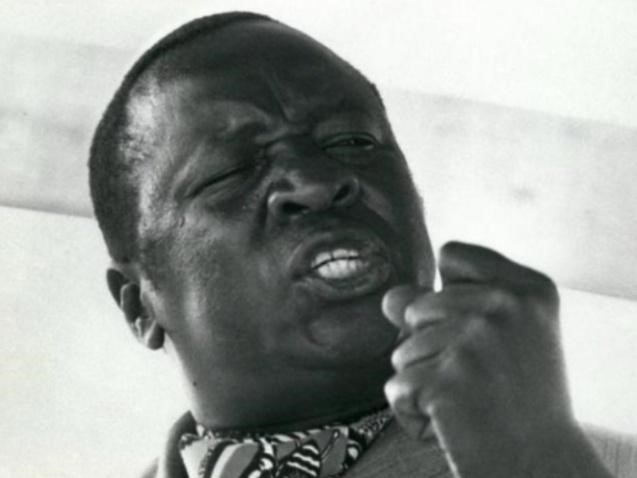
He even ate their flesh in front of the nation, later telling the media:
“Human flesh is too salty; it’s not tasty at all.”
After this, the people of Uganda shivered with fear, too afraid to speak out, terrified of dying in the mouth of this “cannibal president.”
In Amin’s mind, he was not only the god of Uganda but the king of the world. He made outrageous statements internationally, suggesting that the world should revolve around Uganda and that developed countries should form alliances with his nation. He even demanded that the United Nations move its headquarters to Kampala, Uganda’s capital.

But his most audacious act was flirting with Queen Elizabeth II. Amin, infatuated with the Queen, sent her a telegram saying, “Dear Queen, if you want to know what a real man is, come to Uganda to find me.”
The Queen ignored him, but Amin didn’t stop there; he made an even more shameless request.
He asked for the Queen’s used underwear, claiming he would sleep with it every night to ensure the friendship between their nations would last.
The British public was outraged, lambasting Amin on social media for weeks.
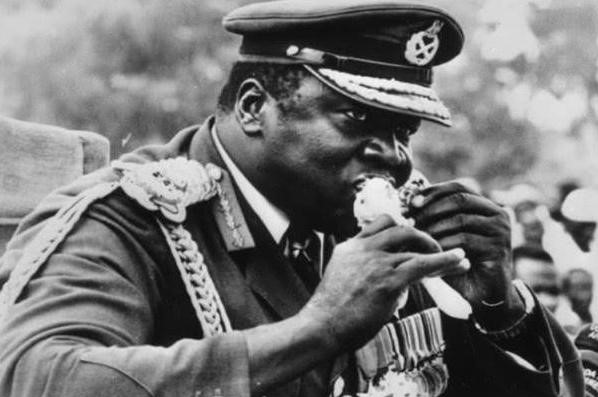
However, Amin was not a fool. He knew he had garnered much criticism both at home and abroad and wanted to be remembered fondly. To this end, he launched an invasion of neighboring Tanzania, hoping victory would cleanse his reputation.
But his plan backfired spectacularly.
In October 1978, Amin launched an invasion of Tanzania under some pretext. He expected an easy victory, but his troops, weakened by his oppressive rule, quickly surrendered, suffering heavy casualties.
Worse still, the Tanzanian army counterattacked, and the Ugandan people, instead of resisting, formed a People’s Army to capture Amin. Although they didn’t succeed, Amin’s government was overthrown. He fled to Libya with four wives, several mistresses, and over twenty children.
Libya’s president initially sheltered him, but Amin’s arrogance led to conflicts with local police, forcing him to leave. He eventually settled in Saudi Arabia, where he died on July 18, 2003, at the age of 77, from multiple organ failure, marking the end of a tyrant.

It’s undeniable that Amin’s childhood was tragic, and his brutal rule was partly a result of his upbringing. However, this does not excuse his atrocities and the devastation he brought upon his country. From a moral or humanitarian standpoint, Amin was not a man to be admired, thus earning him the title of “The Most Absurd President of Africa.” His legacy is for the people of Uganda to judge







